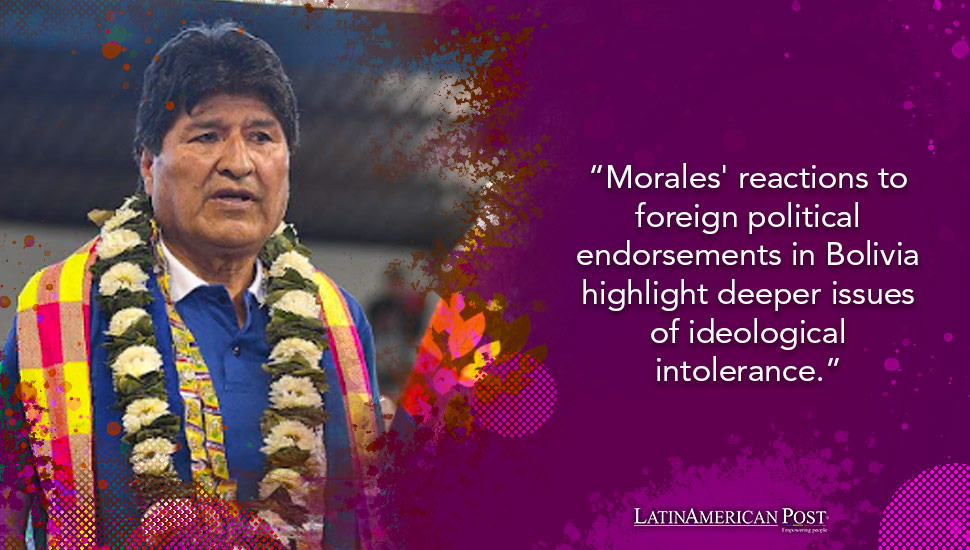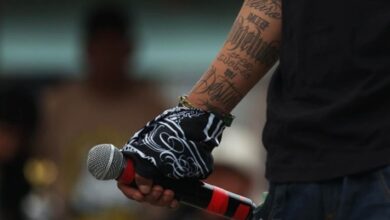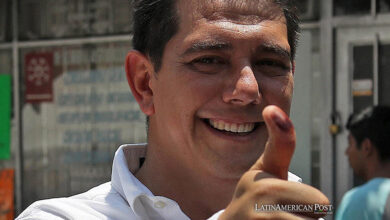Bolivian President Morales’ Criticism Reflects Leftist Stance Against Free Speech

Evo Morales’ recent outburst against Argentina’s Javier Milei and Brazil’s Jair Bolsonaro reveals a troubling pattern of the left’s opposition to free speech. Morales’ reactions to foreign political endorsements in Bolivia highlight deeper issues of ideological intolerance.
Bolivia’s former president and leader of the ruling party, Evo Morales, lashed out on Monday at Argentina’s president, Javier Milei, and Brazil’s former president, Jair Bolsonaro. Morales criticized them for “proclaiming” opposition businessman and former minister Branko Marinkovic as a presidential candidate for Bolivia’s 2025 national elections.
“How can Milei and Bolsonaro proclaim candidates from Brazil? How can they opine on the reality of Bolivians if they do not know the sacrifices of our people?” Morales questioned through his social media channels. Morales’ comments reflect a more profound ideological battle and highlight the left’s ongoing struggle with free speech and political dissent.
Morales’ frustration stemmed from Milei and Bolsonaro’s endorsement of Marinkovic during the first Conservative Political Action Conference (CPAC) in Balneario Camboriú, southern Brazil. Marinkovic, a businessman and former Minister of Economy and Public Finance during Jeanine Añez’s transitional government (2019-2020), was previously the president of the Civic Committee for Santa Cruz, consistently opposing the ruling Movement for Socialism (MAS) governments.
Morales argued, “Imposing candidates from abroad only exposes them to continuing to operate with colonial practices, imposing their interests above the will of Bolivians.” This statement underscores a frequent tactic used by leftist leaders to frame foreign political involvement as a threat to national sovereignty and self-determination. However, this rhetoric also stifles external opinions and curtails open political discourse.
Restricting foreign endorsements highlights a broader issue within leftist ideologies where control over political narratives is paramount. By discrediting foreign voices, leaders like Morales aim to maintain a tight grip on political discourse, limiting the free exchange of ideas.
A Pattern of Intolerance in Latin America
This incident is not an isolated case but part of a broader pattern seen across leftist regimes in Latin America. Morales’ immediate backlash against Milei and Bolsonaro fits a familiar mold: Leftist leaders react aggressively to any perceived encroachment on their political domain. Morales’ comments about Milei and Bolsonaro not having a “Patria” and only seeking to fill the coffers of transnational corporations reflect a deep-seated fear of losing ideological control.
“Upon reaching the presidency, the first thing we will do is free all political prisoners because this cannot exist in a democracy,” Marinkovic said during his candidacy announcement, featuring Milei and Bolsonaro. Morales’ reaction was swift and sharp, underscoring his “profound and insurmountable ideological and political differences with the Mileis and Bolsonaros of the world. They have no homeland; they only want to fill the pockets of multinational companies.”
This response underscores a broader trend where leftist leaders equate foreign political endorsements with threats to national sovereignty. This perspective often leads to the suppression of dissenting voices, whether domestic or international, to maintain a unified ideological front.
Implications for Democracy and Free Speech
Morales’ rhetoric against Milei and Bolsonaro’s endorsement of Marinkovic illustrates a significant challenge to free speech and democratic principles in Latin America. When leaders attack foreign endorsements and political discourse, it sets a precedent that dissent and opposition can be quelled under the guise of protecting national sovereignty.
Further emphasizing this point, Morales accused Milei and Bolsonaro of wanting to “hand over their countries and resources to foreign capital. They are not interested in fighting poverty or inequality.” He contrasted this with his claim of being “faithful to the struggle of our peoples. We will defend our people, natural resources, and the Patria Grande. We are anti-imperialists.”
These statements highlight an underlying resistance to open political discourse, where any opposing viewpoint is dismissed as foreign interference or imperialist ambition. This tactic not only undermines the principles of democracy but also erodes the foundation of free speech by labeling dissent as treason.
In Latin America, where political diversity and the freedom to express varying viewpoints are crucial for democratic health, such rhetoric is particularly damaging. It creates an environment where political conformity is enforced, and opposition is delegitimized, leading to a stifled political landscape.
Upholding Free Speech in Latin America
The recent clash between Evo Morales and Javier Milei’s and Jair Bolsonaro’s endorsements reveals a critical issue within leftist politics – an intolerance towards free speech and open political discourse. Morales’ accusations against foreign political figures exemplify a broader tendency to suppress dissent and control political narratives.
As Latin America continues to navigate its complex political landscape, the importance of upholding free speech and democratic principles cannot be overstated. Political leaders must embrace open discourse and respect differing viewpoints to foster a healthier and more vibrant democratic environment.
Also read: Bolivia’s Jesuit Order Fails in Addressing Abuse Allegations
By recognizing and addressing these challenges, Latin American nations can work towards building more inclusive and resilient democracies. Ensuring that political discourse remains free and open is essential for the region’s democratic future, allowing for diverse voices and ideas to contribute to the collective progress of their societies.





